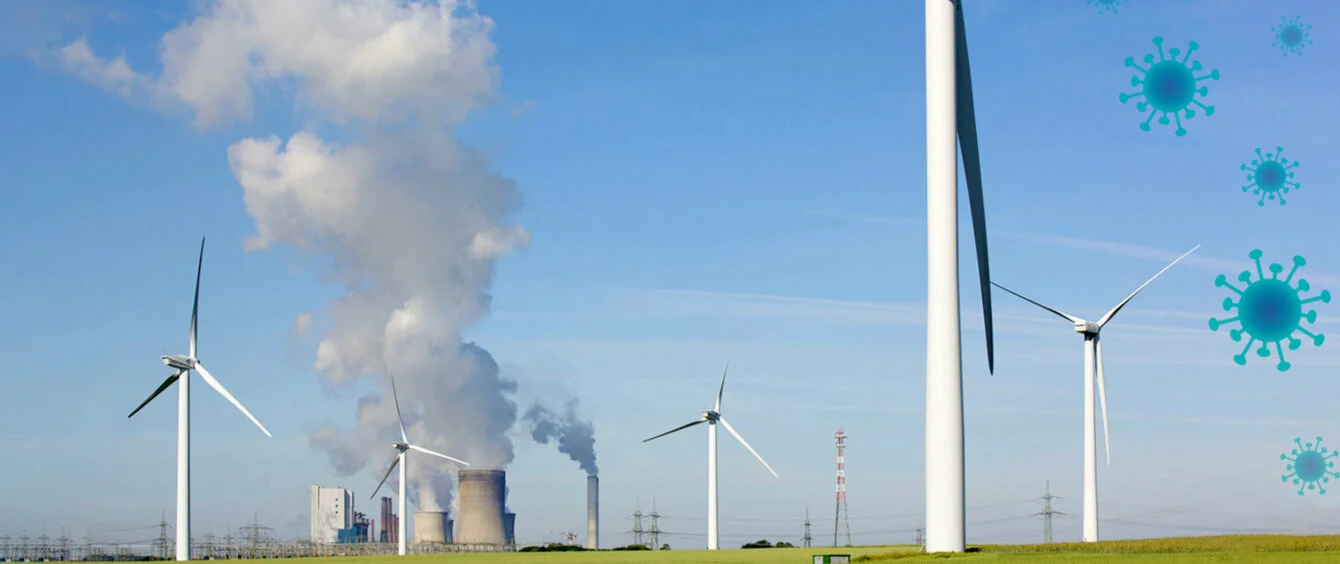“The energy industry knows its responsibility as a supplier. At present, we do not see any risk to supply security,” says Kerstin Andreae, Chairman of the Executive Board of the German Energy and Water Industry Association (BDEW). As part of its crisis and emergency management, the energy industry has set up processes that are regularly tested, reviewed and evaluated. And they work.
Energy supply is an area that must function. Traffic lights and telephones, supermarkets and hospitals – without sufficient electricity and gas, public life (and its protection) would collapse. That is why emergency plans are in place. Plans that ensure that not only power generation, but also the operation of electricity or gas networks, can be maintained throughout – regardless of whether there are technical problems, disasters or even terrorist attacks. Just as importantly, these plans, which are also designed to prevent the spread of a virus after experiences such as the outbreak of bird flu, must protect employees in general and those in the power plants in particular.
So what exactly does this mean at RWE?
RWE has activated its tried and tested crisis management plans. The company is in close contact with the responsible authorities and the pandemic plans are regularly reviewed and adapted. The regulations for employees are clear. Particular areas of work such as control centres, fault clearance services and the associated support processes are given special attention. In order to guarantee generation in the power plants and minimise operational risks, important functions are staffed twice, both locally and with back up personnel. Teams and shifts have been split and work on a rolling basis.
What are the other companies doing?
The other energy companies behave in a very similar way. At the beginning of February, for example, the German energy company EnBW set up a “task force” with representatives from all the relevant divisions of the company, who exchange information on the situation several times a day. EnBW’s emergency plans also include rotation plans for shifts, the establishment of reserve control rooms and an alternative trading floor for energy trading. “At the present time,” it says, “we have no indications that the pandemic will cause disruptions to the energy supply in the southwest of Germany, our area of responsibility.”
What about the grids?
Without transmission grids, no electricity flows, so the lights and radios cannot be switched on. This is why similar rules to those at RWE and other generators also apply to transmission system operators. For example, they always maintain a so-called Reserve Control Center, which is ready for immediate operation, as a backup for the actual control room. “In our view, the transmission system operators are prepared as well as possible for all scenarios,” says the Federal Network Agency, which is responsible for the electricity and gas networks.
What is the situation in other countries?
Similar – see, for example, the UK and the Netherlands. In the latter, the network operator TenneT is monitoring the situation closely. Overall, the current situation is still comparable with the situation on ‘normal’ days. “As a company, TenneT takes the risks of the coronavirus very seriously. The safety and health of our employees is of the utmost importance to us,” said a spokesman. “We already took preventive measures weeks ago to protect employees from infection and maintain business operations.” Special precautions have been taken for employees working in sensitive areas, such as the system control rooms.
And in the UK, grid operator National Grid says, “We have well-developed procedures to deal with the effects of a pandemic. At the same time, we have analysed the likely impact on electricity demand if more people stay at home. The lights will not go out.”
What is the experience so far?
What sounds good in theory doesn’t necessarily always work in practice. But it does – as the Heinsberg example shows. When the first case of corona was confirmed in the town in North Rhine-Westphalia, the responsible electricity network operator reacted immediately and cautiously. A crisis team was set up and the prepared emergency plan activated. The go-ahead was given for measures that had been determined precisely for this scenario to be implemented: teams were thinned out and physically separated, employees were sent to work from home, business trips were prohibited, recommendations for action were distributed, working hours were handled flexibly. After almost four weeks in crisis mode, it is time to take stock. And the results are positive: “The Corona crisis,” the company told the Welt newspaper, “has not affected our work to date. After numerous discussions, the power grid operator believes they can speak on behalf of the entire industry: “The energy industry as a whole is well prepared for any crisis: we are not facing power cuts.”
